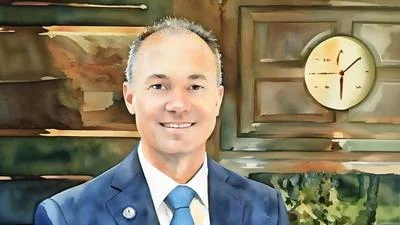Supply lines, allied pressure, and the use of sanctions and long-range strikes now define Ukraine’s war effort and aim to shift the Kremlin’s calculus. Meaghan Mobbs, director of the Center for American Safety and Security at the Independent Women’s Forum, argues that American principles, smart logistics, and tougher pressure are the best way to hasten a just peace.
Mobbs is a West Point graduate and former paratrooper combat veteran. She earned a master’s in forensic psychology from George Washington University and a doctorate in clinical psychology from Columbia University. She has led the RT Weatherman Foundation since 2022, making more than 27 trips to Ukraine during the war.
Her case begins with logistics. “Amateurs talk tactics; professionals talk logistics,” she says. Early chaos led her team to stand up a humanitarian hub through Romania rather than Poland. “We established a logistics corridor in the south and delivered almost $150 million in aid with partners,” she says. Large organizations “are bureaucratic, slow, risk-averse,” so nimble operations matter near the front.
The foundation’s work extends beyond boxes and trucks, according to her. “We partner with Ukrainian special forces on live-tissue trauma training, a NATO-standard course that increases survivability on the battlefield,” she says.
Another priority addresses those still missing. “We scale forensic identification so Ukraine can return defenders home with dignity and honor,” she says. “That sacred compact—bring you home no matter the cost—keeps faith with families and troops.”
Mobbs ties strategy to deterrence. “Anything that increases Ukraine’s ability to hit rear-area targets changes the calculus,” she says. Tomahawk missiles “are not a panacea,” yet she views the open discussion itself as leverage. “It signals to Russia that this president is willing to go further.” Ukraine’s own strikes on energy infrastructure reinforce that message.
Public pressure also matters, and she applauds new steps on sanctions and elevates the fight to protect abducted children. “They are kidnaping and brainwashing,” she says. “That is genocide… and we need extraordinary moral clarity.”
She credits Melania Trump for pushing the issue internationally. “A first lady engaging an adversarial leader on a specific problem is near unprecedented.”
Her patience with the United Nations is gone. “It is a useless institute,” she says, citing permanent Security Council vetoes for Russia and China and a UN finding that Russian forces conduct “human safari” drone attacks on civilians. “They talk while the largest land war in Europe since World War II rages.”
Allied burden-sharing draws praise—if it turns into action. “Ambassador Whitaker is steady-handed and clear-eyed,” she says, adding that President Trump “gets a lot of credit” for pushing defense spending goals. “Europe talks pretty; it needs to do more,” she says.
No side is winning, according to Mobbs. “Russia is hemorrhaging people and money,” she says, yet attrition favors its larger pool of resources. “My preferred outcome is every Russian off every inch of Ukrainian territory,” she says, but political will in the United States and Europe may force compromise. “An unconditional ceasefire is the first step; guns must fall silent before tackling the sticky points.”
Her motivation remains personal and principled. At a border crossing in 2022, a young guard saw her passport and said, “Oh, thank God, an American.” Mobbs calls that moment proof that “Americans show up,” even when governments falter. “I’m very pro-American,” she says. “Ukraine fights for freedom, sovereignty, and the right to repel tyranny—values I grow up with.”









